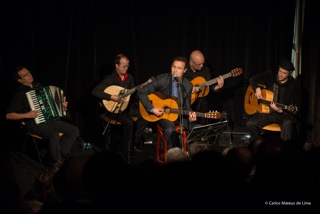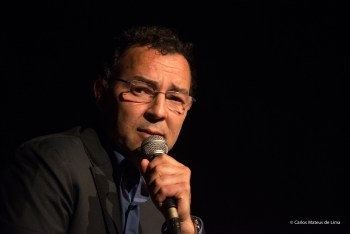Know more:
Miguel Rebelo
(N. 25 November, 1963)Miguel Rebelo was born in Lisbon and very early revealed his special love for music. At 4 years old, began is musical education at Portuguese Musical Youth (JMP) and, at the age of 7, started to study classical guitar at the School Duarte Costa, with Professor Lopes e Silva.
He entered the National Conservatory of Music in Lisbon with 9 years old, where he studied classical guitar with the same teacher. Simultaneously he studied piano with Professor Olga Prats, along with a whole set of theoretical matters. He completed the General Course of the Conservatory.
He taught music for five years and in the early nineties of the last century he began to be known to the public, singing and playing in some of the coolest bars in Lisbon. At that time he worked with Carlos do Carmo, Isabel Silvestre and Paulo de Carvalho.
It is also at this time that he shows his work as a composer. In 1994, competes for the first Grand Prix of the Fado RTP with a song of his own (for a poem of João Dias) and, from more than four hundred singer applicants, his fado was selected.
In that year, he creates the band "Canto do Vigário", with the collaboration of some of the best portuguese musicians. "Canto do Vigário" releases two CDs, in 1995 and 1998.
The song "De que vale", of the first CD (his composition and lyrics by Rui Rocha, a childhood friend) won the award for best Portuguese song of 1995 at Top 25 RFM.
In recent years, he has dedicated himself almost exclusively to Fado having published in February 2011, his first album "Quem foi que te fez Fado”. Even before its publication, this album was recognized and awarded by the Portuguese Authors Society (SPA).
In February 2013 came the second CD, "O nosso fado hoje é do Mundo". This work had its first presentation to the press and guests at the Fado Museum on the 9 April, 2013.

Miguel Rebelo, s/d

Miguel Rebelo, Museu do Fado, 2013 / Foto de Carlos Mateus de Lima

Miguel Rebelo, Museu do Fado, 2013 / Foto de Carlos Mateus de Lima
-
A Fragata e o Arrais Miguel Rebelo (João Dias - Miguel Rebelo)